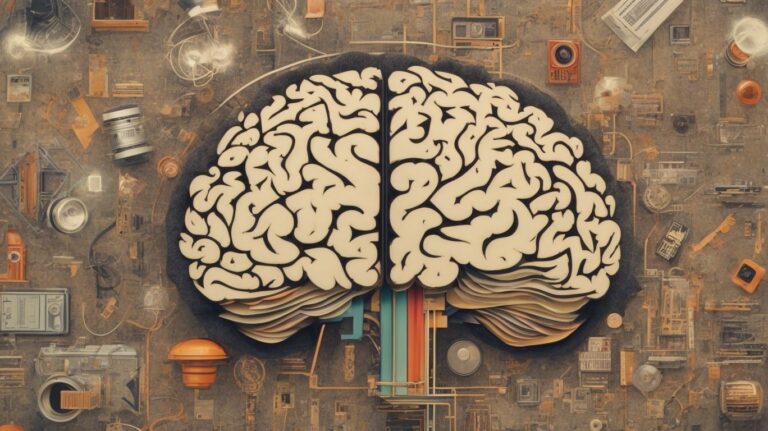Differentiation is a crucial psychological process that plays a significant role in personal growth, relationships, professional success, parenting, and family dynamics. In this article, we will delve into the stages of differentiation, the factors that influence it, and its importance in various aspects of life.
We will also discuss how differentiation impacts relationships, how individuals can improve their level of differentiation, and the challenges and benefits of differentiation in professional settings. We will explore the impact of therapy in developing differentiation skills.
Join us on this journey of exploring the intricate process of differentiation and its implications in our lives.
Contents
- 1 What Is Differentiation?
- 2 The Psychological Process of Differentiation
- 3 The Importance of Differentiation in Personal Growth
- 4 Differentiation in Professional Settings
- 5 Differentiation in Parenting and Family Dynamics
- 6 The Role of Therapy in Developing Differentiation
- 7 Frequently Asked Questions
- 7.1 What is exploring differentiation?
- 7.2 How does exploring differentiation affect our relationships?
- 7.3 In what ways does exploring differentiation lead to personal growth?
- 7.4 What are some common challenges in exploring differentiation?
- 7.5 How can therapy help in the process of exploring differentiation?
- 7.6 What are some tips for practicing exploring differentiation in daily life?
What Is Differentiation?
Differentiation refers to the psychological process of achieving a sense of self that is distinct from others, leading to increased psychological maturity and a deeper understanding of one’s individuality.
This process involves developing a clear sense of who you are as a unique individual, separate from the influence of others. By embracing differentiation, individuals can gain a better understanding of their values, beliefs, and emotions, paving the way for personal growth and self-actualization. Cultivating a strong sense of self not only enhances one’s confidence and decision-making abilities but also fosters healthier relationships, as individuals are more authentic in their interactions when they are true to themselves.
The Psychological Process of Differentiation
The psychological process of differentiation involves navigating one’s emotions, thoughts, and feelings while striving to break free from emotional fusion and cut-off patterns that hinder personal growth and self-awareness.
What Are the Stages of Differentiation?
Differentiation unfolds in stages, starting with self-validation, progressing through self-soothing, and culminating in the cultivation of self-pride as individuals learn to balance their emotions and thoughts.
This journey towards psychological autonomy involves a profound inner exploration where individuals navigate the realm of self-worth and authenticity. Through self-validation, individuals begin to recognize and appreciate their own inherent value and worth, laying a foundation for building a strong sense of self.
- Self-soothing techniques play a pivotal role in this process, enabling individuals to regulate their emotions and provide themselves with comfort and reassurance in times of distress.
- As individuals progress towards self-pride, they develop a deep-rooted belief in their abilities and accomplishments, nurturing a sense of inner confidence and fulfillment.
What Are the Factors That Influence Differentiation?
Various factors influence the process of differentiation, including the ability to strike a balance between emotional authenticity, poise in communication, and mastery over one’s thoughts and behaviors.
External factors, such as societal expectations and cultural norms, play a significant role in shaping an individual’s approach to differentiation. These influences can either support or hinder the development of personal growth and emotional intelligence.
Internally, past experiences, fears, and insecurities can also impact one’s ability to validate their own emotions and navigate relationships effectively. By acknowledging and addressing these internal and external factors, individuals can work towards achieving a harmonious blend of authenticity and self-awareness, leading to enhanced emotional resilience and interpersonal effectiveness.
The Importance of Differentiation in Personal Growth
Differentiation plays a pivotal role in personal growth by fostering self-esteem, encouraging self-confrontation, and nurturing authenticity in relationships and individuality.
How Does Differentiation Affect Relationships?
Differentiation influences relationships by enhancing emotional intelligence, promoting healthy validation, and fostering deeper connections based on authenticity and self-awareness.
When individuals in a relationship practice differentiation, they become more adept at recognizing and managing their emotions, as well as understanding the emotions of others. This heightened emotional intelligence enables them to navigate conflicts with empathy and compassion, laying a solid foundation for communication and mutual understanding. Through validating each other’s feelings and experiences, they create a nurturing environment where both parties feel heard and respected.
How Can One Improve Their Level of Differentiation?
Improving one’s level of differentiation involves examining behaviors, reshaping characteristics, and grasping key concepts related to self-validation, self-soothing, and emotional balance.
One effective strategy for enhancing differentiation is acknowledging and cultivating your self-worth. By valuing yourself and recognizing your unique qualities, you can boost your confidence and sense of identity. Focusing on individuality, rather than conforming to societal norms, can help you embrace your authentic self. To further develop differentiation, practice self-soothing techniques such as mindfulness, deep breathing, or engaging in activities that bring you joy and calmness.
Differentiation in Professional Settings
Differentiation in professional settings enables individuals to embrace autonomy, strive for independence, and navigate workplace dynamics with a sense of individuality and emotional poise.
How Does Differentiation Contribute to Success in the Workplace?
Differentiation fosters workplace success by promoting personal growth, facilitating progress, and enhancing individual contributions within a collaborative and supportive professional environment.
By recognizing individual strengths and talents, companies can assign tasks and responsibilities that best suit each employee, leading to increased job satisfaction and productivity.
Communication plays a crucial role in this process, allowing team members to express their ideas and concerns effectively. When employees feel valued and their voices are heard, they are more likely to engage fully and contribute meaningfully to the organization’s goals. This sense of self-pride and accomplishment further fuels motivation and commitment to continuous improvement.
What Are the Challenges of Differentiation in the Workplace?
Challenges related to differentiation in the workplace may include managing chronic anxiety, navigating issues of togetherness versus individuality, and addressing communication barriers that hinder professional growth.
Striking a balance between individual aspirations and collective objectives is crucial in fostering a harmonious work environment. Cultivating an atmosphere that encourages collaboration while respecting individual contributions can lead to progress and innovation. By promoting open and transparent communication channels, employees can mitigate misunderstandings and strengthen relationships, paving the way for mutual understanding and growth. Overcoming these obstacles requires a commitment to continuous improvement and a willingness to adapt to changing dynamics in the workplace.
Differentiation in Parenting and Family Dynamics
Differentiation significantly impacts parenting styles, influencing caregivers to foster healthy relationships, encourage individuality, and promote emotional validation within the family dynamic.
How Does Differentiation Impact Parenting Styles?
Differentiation shapes parenting styles by guiding caregivers through adolescence, promoting autonomy, and fostering independence in children, thereby cultivating resilient and self-aware individuals.
Adolescence is a crucial period where relationships between parents and teenagers undergo significant changes. Through effective differentiation, parents can strike a balance between providing support and allowing space for growth.
- Guiding adolescents with understanding and communication lays the foundation for strong relationships built on trust and respect.
- By fostering independence, parents enable their teenagers to make informed choices, enhancing their sense of self-reliance and accountability.
- Nurturing self-reliance instills a growth mindset in children, encouraging them to embrace challenges with resilience and self-awareness.
How Can Families Foster Healthy Differentiation?
Families can foster healthy differentiation by emphasizing self-soothing practices, promoting self-validation, and attentively responding to emotional cues within the family system to support individual growth.
Encouraging open communication within the family allows each member to express their thoughts and feelings authentically, fostering a sense of authenticity and individuality. By creating a safe space for vulnerability and honesty, family members can build trust and support one another’s emotional well-being.
Setting boundaries and respecting each other’s autonomy is crucial in promoting healthy differentiation. Acknowledging and honoring each individual’s needs and interests can strengthen familial bonds while also nurturing personal growth and individuality.
The Role of Therapy in Developing Differentiation
Therapy, such as that offered by BetterHelp, plays a crucial role in facilitating the development of differentiation by providing individuals with professional guidance, emotional support, and tools for enhancing self-awareness and personal growth.
How Can Therapy Help Individuals Improve Their Differentiation?
Therapy, whether in-person or through online platforms like Online-Therapy.com, aids individuals in improving differentiation by encouraging self-confrontation, fostering growth, and providing a supportive environment for exploring emotions and thoughts.
Self-confrontation, a key aspect in therapy, involves individuals facing their internal conflicts, fears, and uncertainties, which in turn supports their personal growth and development.
Growth-promoting strategies implemented in therapy sessions help individuals expand their self-awareness and navigate through challenges, ultimately fostering a sense of enablement.
Emotional exploration in therapy plays a vital role in unraveling deep-seated emotions, understanding their origins, and learning effective coping mechanisms to enhance emotional well-being and progress.
Frequently Asked Questions
What is exploring differentiation?
Exploring differentiation is a psychological process of understanding and accepting one’s own individuality and unique identity. It involves identifying and acknowledging one’s thoughts, emotions, and behaviors, and how they differ from others.
How does exploring differentiation affect our relationships?
Exploring differentiation can have a significant impact on our relationships. It allows us to have healthier and more fulfilling connections with others, as we are able to communicate our needs and boundaries effectively and also respect the individuality of others.
In what ways does exploring differentiation lead to personal growth?
Exploring differentiation is a journey of self-discovery and self-awareness. It can lead to personal growth by helping us understand our strengths and weaknesses, develop a sense of self-worth and confidence, and make choices that align with our values and goals.
What are some common challenges in exploring differentiation?
Some common challenges in exploring differentiation include fear of rejection, difficulty in setting boundaries, and feeling overwhelmed by intense emotions. It can also be challenging to break away from societal expectations and pressures to conform.
How can therapy help in the process of exploring differentiation?
Therapy can provide a safe and non-judgmental space for individuals to explore their thoughts, emotions, and behaviors. A therapist can help individuals identify and challenge any limiting beliefs or patterns, and support them in developing healthier coping strategies and communication skills.
What are some tips for practicing exploring differentiation in daily life?
Some tips for practicing exploring differentiation in daily life include self-reflection, setting boundaries, and being open to new experiences and perspectives. It is also helpful to surround yourself with supportive and accepting individuals who encourage and respect your journey of self-discovery.


